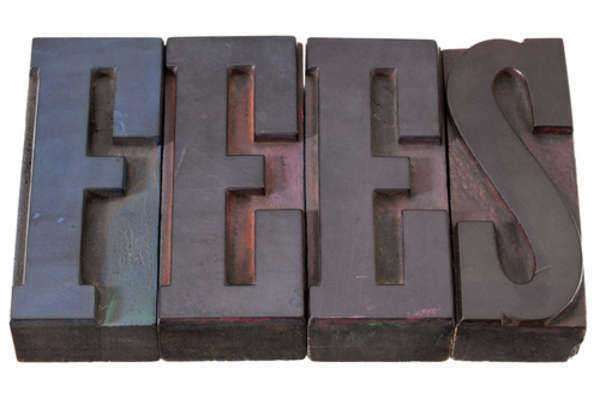Watch Out for those Overdraft Fees!
A bank overdraft fee is incurred by a bank customer when that customer writes a check on his or her account while that account does not have the necessary funds to support the check.
This would actually only occur when payment on the check is drawn, which means that it is possible for a customer to avoid an overdraft fee if he or she knows that he or she will be making a payment into his or her account prior to the recipient of the check attempting to deposit or cash that check. However, some banks actually use practices such that they will process payments before they process deposits so as to maximize bank overdraft fees and make the most profit.
Bank overdraft fees are a highly debated practice for reasons such as this. An overdraft fee can be examined as a penalty for overdrawing an account and for having the bank cover a payment which otherwise would not have been covered.

An overdraft fee can also be viewed from the perspective of the customer, however, who might not want to pay an overdraft fee. The customer might instead prefer to simply have the check bounce, instead of having to pay extra on it. As such, the customer might see overdraft fees as unfair charges to his or her account.
Nowadays, there are a large number of possible sources for bank overdraft fees, ranging from ATM overdrafts, when an individual attempts to receive cash from an ATM and overdraws his or her account in the process.
An overdraft fee may also apply to authorization holds, in which a customer's purchase with a merchant may not be treated as a standard debit purchase, possibly resulting in the funds being set aside in the customer's account for payment at a later date. The customer, in such a case, might think that he or she is safe from an overdraft fee, as the payment would be set aside, but the bank does not hold such payment indefinitely.
Thus, if the merchant does not draw payment in a short amount of time, the set-aside payment might go back into the account proper and the account holder might overspend and wind up without enough money left in his or her account to pay when the merchant does finally draw the debt, thus resulting in an overdraft fee for the individual.
In America, there are some systems available to help protect oneself from bank overdraft fees. Overdraft fee protection services can help protect a customer from any kind of overdraft fee made when paying for certain items or when obtaining funds in certain ways.
There are different types of overdraft fee protection services, some of which may simply provide a line of credit attached to an account, thereby allowing the consumer to make purchases past their account value to a certain limit without incurring bank overdraft fees. Others may involve connecting an account to another account such that when one account is overdrawn, instead of incurring bank overdraft fees the remaining extra amount is drawn from the linked account.
In general, however, because an overdraft fee may be far too appealing of a tool for a bank to obtain profit, there are many elements of proposed legislation and regulation which might limit the use of these bank overdraft fees.